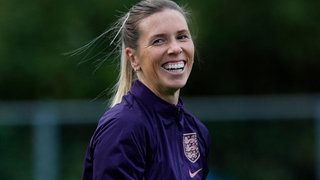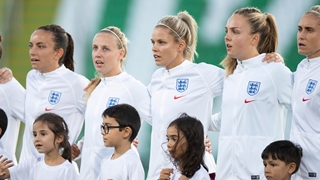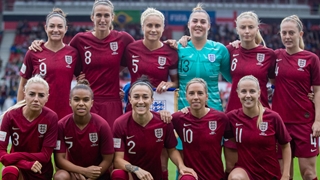
England goalkeeper Carly Telford has provided an insight into the importance of preparation and recovery for a professional footballer.
The 32-year-old plies her trade for Chelsea week in, week out in the Barclays FA Women’s Super League.
Telford has also been involved with the Lionesses since 2007, meaning she has had very little time away from the game in over a decade.
She said: “My rest and recovery is so important because mentally I probably have the mindset of a 21-year-old but my body is telling me otherwise.
“I need to be managing my body in a sensible way. So, for example, if I want to go home [to the north-east] that’s six hours in the car: is that a good idea for my body?
“Or would it be better to go for a massage, get in the pool and get ready for the weekend?
“You need to be aware of what is the best thing to do for your body if you want to be putting yourself in the best position to start every game.”
Telford has seen the women’s game evolve into a fully professional sport over the last five years.
She now trains full-time with the Blues, as do hundreds of other Barclays FA WSL players across the country, a far cry from a decade ago when England’s elite players had to balance their football with full- or part-time employment.
Although this professionalism has helped players become fitter and stronger than ever before, it brings with it some challenges, namely a non-stop year of playing and training.
LIONESSES SUPPORTERS CLUB: JOIN NOW
Telford explained: “Last season was 11 months long with the World Cup. We had three weeks off and then the hamster wheel starts turning again so you need to find ways not to fall apart.
“We have forms that we fill in every day about how fresh we feel but communication is very important: if you need to tell someone you can’t do something you absolutely should. Because if you have a niggle and you train for two days that could put you on the sidelines for two or three weeks and that is the worst place to be.
“If you are in the treatment room and all the players around you are gearing up for a game it’s not a happy place to be.”
Telford, who started three matches at France 2019, also enthused about the improving link between national teams and Barclays FA WSL clubs.
She added: “As the game has become more professional the communication has become much better. Clubs and national teams are talking to each other more.
“They don’t want to send us on [an England] camp if we have niggling injuries because we will come back injured and that’s their investment in us lost.
“Take someone like Jill [Scott], for example. She was rested for the Belgium and Norway games, not because she was injured just because it was important that she had some extra rest.
“Sometimes that can be frustrating for a player because you want to be playing all the time but it is for your own benefit.”









